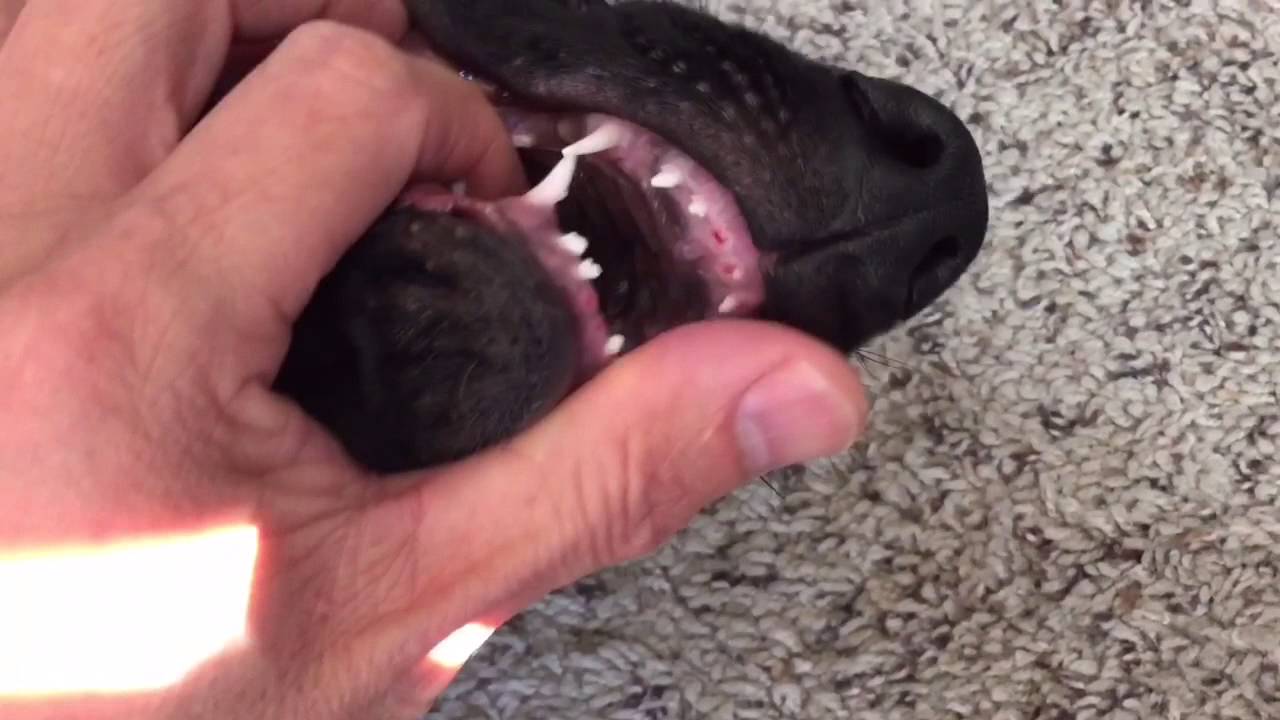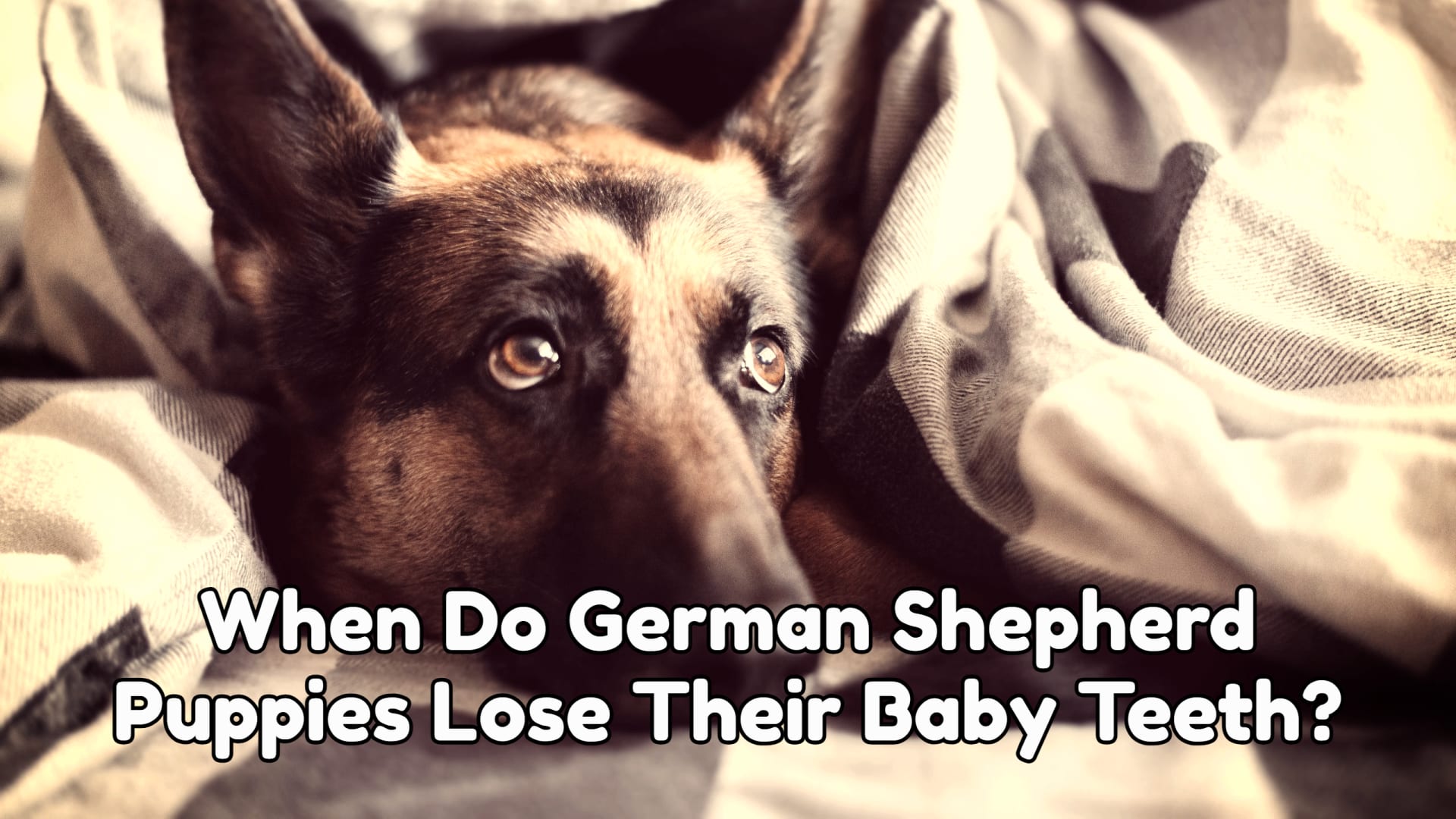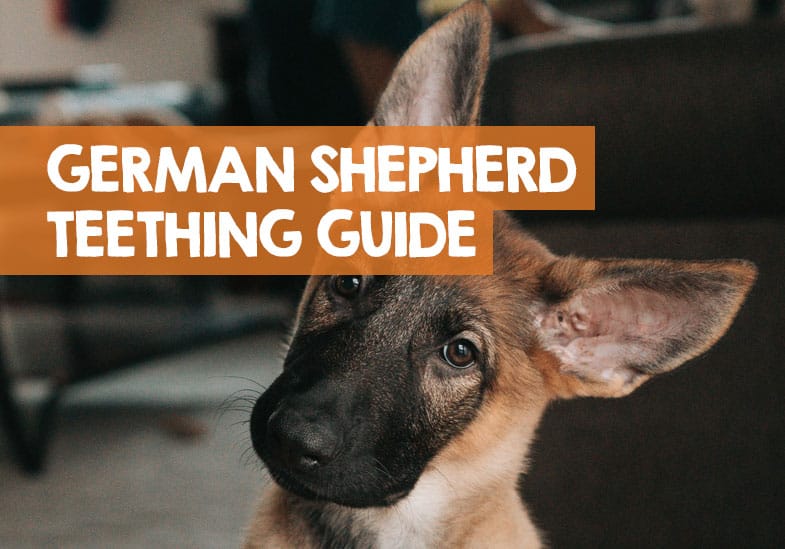What Diseases Are Common In German Shepherds
There are a number of common conditions seen in this breed so insure your German Shepherd as soon as you get it.
Inherited conditions such as hip dysplasia are becoming more common largely because of irresponsible breeding so you should look for a puppy whose parents are both hip scored and the lower the score the better ideally less than ten. This is a distressing and painful condition for a German Shepherd as well as the costs for treating being prohibitive if the animal is not insured. Elbow dysplasia is also a common hereditary condition.
Bloat or gastric torsion is also a real problem and can be a life threatening condition, which has become more common in deep chested dogs over the years. Experts are divided but, good tips for reducing the risk are that it is best to feed 2 small meals rather than one large meal a day and to avoid feeding your German Shepherd before strenuous exercise.
Another disease that can affect your German Shepherd is the anal furunculosis. This is a distressing auto immune condition which can be controlled with expensive drugs for a while but will inevitably progress as a degenerative disease which will ultimately lead to the loss of use of the back legs and then bowel/urinary incontinence.
Epilepsy is also more common these days and although it can be controlled by drugs, there can be serious after effects.
How Long Do German Shepherds Teething Last
The time it takes for your GSD puppy to finish teething can last anywhere from three to four months, but most German shepherds usually finish teething by six months of age. The adult teeth are usually erupted by the time your puppy is 6 months of age. Anything beyond this age is highly unusual and would be really requiring a vets attention.
Generally speaking, large dog breeds like German Shepherd dogs tend to have their teeth come in and erupt sooner than smaller breeds.
Some Tips To Help Your Puppy Deal With Teething
While your puppy is teething, they will likely feel chronic pain due to baby and adult teeth cycling in and out of their mouth.
With a few toys or treats, you could reduce gum redness or even prevent your puppy from chewing on your furniture.
Use some of these tips and remedies to help ease your puppys pain while they are teething:
- Rub ice cubes on their gums. Freeze a broth your puppy loves and gently brush an ice cube against their reddened gums to provide relief.
- Non-caffeinated tea. Giving your puppy a chilled tea might help them relax. For example, a herb like chamomile is safe for dogs.
- Natural puppy teething gel. These products help soothe your puppys sore gums, reduces pain, and may prevent unwanted chewing.
- Edible Chews. Avoid chews containing additives and opt for chews with natural ingredients. Also, you want to ensure they are not too thick. You want a chewable that will not shatter in your puppys mouth, but you do not want your puppy to break their teeth when gnawing on the chew.
You May Like: Who Would Win In A Fight German Shepherd Or Pitbull
What Do Dogs Do When Their Baby Teeth Fall Out
You may find deciduous on the floor, but more likely, your puppy will harmlessly swallow the teeth while he is eating. It is not unusual for some bleeding to occur when the teeth fall or are falling out, but the amount is minuscule and owners usually notice it only if there is some mild red staining on a chew toy.
Practice Proper Dental Care

For now, you can skip the dog tooth brushing. Instead, pet parents can start familiarizing their pups with elements of tooth brushing without actually scrubbing their new teeth by lightly touching the teeth with a toothbrush or putting dog toothpaste, such as TropiClean Fresh Breath Puppy Clean Teeth Gel, in their mouth. This will help put your pup on the road to good dental health, avoiding trouble like periodontal disease.
Also Check: How To Grow Long Hair For German Shepherd
Signs To Keep An Eye On During Your Puppy Teething
It can vary somewhat between breeds, and there is progress you can expect as your puppy develops new teeth.
It is important to start maintaining your puppys mouth at an early age so you can check for any dental problems from time to time.
Signs of oral discomfort include any kind of facial swelling, changes in eating habits, unexpected unexpected night wakes or face massage.
You may want to take your puppy to the vet if you see:
- Two teeth occupy a space in your puppys mouth. This can cause the adult tooth to become crooked, which can then cause problems.
- Blood stains on your dogs toys, brown tartar on teeth, or bleeding, inflamed and / or sore gums. These are common symptoms of periodontal disease, a major oral problem in dogs.
- Cracked teeth. It exposes the tooth nerve itself, causing your dog pain or infection.
- Crooked teeth or malocclusion . Although some species have trademark bites, unusual ones can cause chewing problems.
- Loose adult teeth. Most often, it is caused by injury to the mouth or damage to the gums due to advanced periodontal disease. It can also be a sign of illness.
German Shepherd Teeth Oral Care
Even if your puppy brushes his baby teeth, it is important to start looking after your dogs teeth as soon as possible. Start by brushing your puppys lips and brushing its gums and teeth.
Do this frequently to make your puppy accustomed to putting ones hand in his mouth. You can use a dogs toothbrush on peanut butter or cheese thorns to enjoy the puppy teeth. Do not use human toothpaste to brush your dogs teeth, but go for the best dog toothpaste.
Supply plenty of rubber and raw bones for your dog to chew on. Chewing dog bones helps a puppy to reduce its tooth discomfort, clean its new teeth and refrain from chewing furniture and other household items.
Read Also: House Training A German Shepherd Puppy
When Do German Shepherd Puppies Lose Their Teeth
German Shepherd puppies start losing their puppy teeth between six and eight weeks of age, to make room for the eventual adult teeth. Most Shepherd puppies will have had most of their adult teeth in by the time they are six months old.
Can German Shepherd puppies lose their teeth? This is also a good time to start being very aware of your GSD puppies ear carriage. German Shepherd puppies will begin to lose their puppy teeth and will soon replace them with their adult teeth, generally starting with the incisors.
When do puppies loose their baby teeth? It is hard to tell for sure when your puppy starts loosing its 28 baby teeth. A puppys baby teeth, or milk teeth, come in at four weeks of age and commonly start to fall out between weeks 14 and 30, to make room for the 42 large
When do German Shepherds stop teething? It means a German Shepherd usually stops teething when he reaches the age of 8 months. However, if your puppy is untrained then hell continue chewing for fun or to get your attention. Take your puppy to the vet so he can check if there are misalignment problems. Teething Signs and Symptoms
Will Teething Impact A German Shepherd Puppys Training
A common mistake that many people make is believing that training must be halted during the teething stages. Puppies can and should be trained during this time.
One thing to keep in mind is that training, by itself, wont put a stop to the annoying chewing behavior. However, training will give your puppy a needed diversion that will hopefully keep the chewing under control.
Even if you train the puppy during teething, they will understand what is and is not appropriate behavior. This is key to a well-adjusted puppy.
The age where a puppy is still teething is a perfect time to do crate training. One of the best things about crate training is that it is an excellent way to get them acclimated to their own sleeping space, helping you reach two goals at once.
Don’t Miss: Who Would Win In A Fight German Shepherd Or Pitbull
German Shepherd Tooth Toys & Goods For Handling Chewing & Biting
Dog may experience a little pain and discomfort during toothache, especially in the gums.
This, and the fact that they are still puppies, leads to theinfamous German Shepherd puppy chewing, biting and mouthwatering.
At this stage, you want to start obedience training to reduce bite behavior, but you also want to give your GSD items a chew so they dont chew you or your household goods.
How To Prevent Your Dog From Getting Dental Problems
From time to time, your veterinarian may recommend professional dental cleaning. This requires general anesthesia.
During the procedure, your dogs teeth and gums will be closely monitored for problems. Teeth are scaled and polished to slow the regeneration of tartar.
While some dog groomers offer a dental cleaning service, do not expect deep cleaning. They can brush dog teeth as much as you can at home, but for a thorough, complete cleaning, the teeth should be cleaned under the gumline.
This is not something that should be done while the dog is awake.
If your dog has periodic illness or other dental problems, the vet may need to remove the affected teeth or refer you to an oral surgeon.
Some dogs need dental cleaning once or more a year, while others may go longer. Strictly follow your vet recommendations.
- Tags
Recommended Reading: Who Would Win In A Fight German Shepherd Or Pitbull
What Does It Mean When A Puppy Keeps Biting You
Most puppy mouthing is normal behavior. However, some puppies bite out of fear or frustration, and this type of biting can signal problems with future aggression. Puppies sometimes have temper tantrums. Usually tantrums happen when youre making a puppy do something he doesnt like.
Do German Shepherds Get Bored With Their Food

He’s bored with his current food Just like humans, dogs can get tired of eating the same food every day. If he slowly loses interest in eating, you might want to try buying a different dry food, adding wet food to his dry food, or soaking his dry food in some warm water.
If participating in dog shows, dewclaws in German Shepherds are allowed to be left on the forelegs, but they may also be removed.
dewclaws in the hind legs should be removed.
Most German Shepherd breeders remove the dewclaws or have them removed when the pup are still very young.
Recommended Reading: How Much Do German Shepherds Weigh Full Grown
Caring For A Puppys Adult Teeth
Teeth problems are not limited to teething pups. Once your pup is full-grown, they will also need teeth care and dental maintenance from time to time. Brushing their adult teeth once a day or a minimum of three times a week should be enough for most dogs.
For brushing, you can use a dog-friendly toothbrush and toothpaste. Toothbrushes should be soft, and toothpaste should be formulated for dogs. Remember, never use human toothpaste because it contains ingredients that are toxic to dogs.
Dental treats and chew objects that promote dental health can also be given to help keep their teeth clean. Lastly, dont forget to take your pup in to see the vet for their next dental check-up and teeth cleaning.
German Shepherd Teething Summary
The thing about teething is that all dogs have to go through it and it can not be prevented. Therefore, taking the above suggestions and getting ready is a nice plan. That implies getting prepared for the chewing and getting ready to look after your pups teeth as they develop. If you do both of these, your German Shepherd should wind up with a set of perfect teeth. And you both are going to go through the whole process with ease.
If you are still not sure how to deal with your pups teething and tips covered in this article didnt help you to find the true nature of the problem you might want to contact your vet.
Or, in case you want to save money and time while being efficient in helping your pup to relieve the pain, you might check online vets.
For instance Just ask might be a great option in that case. Its online support with hundreds of qualified vets on call to help you in a second for a tiny fraction of the cost. So you dont have to drive anywhere or worry that your doctor is out of the office and you can get virtually unlimited 24/7support for pennies within the trial period. Check them out.
Credits: thanks for the cover photo to Pixabay. Photo in the text: Canva.
You might also want to read this:
You May Like: Chihuahua Mixed With A German Shepherd
German Shepherd Teething Stages Age & Baby Teeth Timeline
When it comes down to the basic developments in early life, dogs really do not differ all that much from humans. Just like us, they have baby teeth and adult teeth.
German Shepherds are no differed, however, if you have a German Shepherd pup, be prepared because these pups teethe on a hardcore scale. It is a bit like having your own child. Human children teethe hard too, and you have to deal with all the baby phases, German Shepherds do the same, except a human baby is unlikely to chew up your furniture.
Many people will have very clear memories of when they first ever experience a puppy in their home. During the puppy months you will likely find tiny teeth on the floor which would have come out as your pup chews on everything they can see in order to relieve the sore teeth and gums that come with that age. The chewing process is a huge part of the puppy teething process, however, you can always make it easier for your pup to deal with.
Today, we will share with you all the information on why German Shepherds teethe, the age at which they lose their baby teeth, how to help them, and of course what you can expect as an owner. Of course, we will also share tips that will help you prevent them gnawing at all your furniture, especially that lovely new couch you got.
Lets get down to business.
How Big Do They Get
German Shepherds are big dogs. They can actually be very intimidating when facing them, thats also why they are great guard dogs.
German Shepherds reach an average height of 22 to 26 inches and a weight of 77 to 85 pounds .
German Shepherds have erect pointed ears, a long body, and a weather resistant coat. Their thick stiff outer coats covered by a softer inner one makes them readily able to withstand extreme climates.
Read Also: How To Train A German Shepherd Dog To Attack
Do Encourage Other Forms Of Non
Avoid playing with your hands. The idea is to redirect your dogs attention from your hands and to stop her from seeing them as toys to chew on.
Tug-of-war and fetch can be amazing opportunities for play that dont involve direct physical contact.
For tug games, keep in mind, however, that your dog must be calm and not overstimulated before playing. Otherwise, your puppy may get too serious and hold on to the rope too much.
The AKC recommends that for breeds that are prone to aggression such as German Shepherds, tug-of-war can be safely carried out if the puppy knows you are in control and follows your commands.
Once this has been established, a game of tugging can be used both as an exercise and as a reward for your dog.
Heavy duty rope toys such as the Blue Island Dog Rope Toy for Aggressive Chewers should be safe for your GSD puppy yet durable enough to withstand her aggressive chewing.
When playing, always remember to be gentle with tugging as your puppy still has baby teeth!
Do Reward Good Behavior
Dog trainers and experts agree that positive reinforcement using rewards are highly effective in forming and keeping desirable behaviors as a puppy matures into an adult dog.
Try reaching out your hand to your puppys nose. If her nose touches your fingers without biting them, give her a treat and praise generously.
Hold off the treat if she bites. Do this repeatedly until she associates the treat with not biting your hand .
Read Also: Can Pitbulls Eat Tomatoes
What Can You Give A Teething German Sheperd For Comfort
Your puppy might have started chewing on things they shouldnt. This is because they are teething. To stop them from chewing your furniture and shoes, give them toys to chew on instead.
Ice cubes are a great way to make your puppy feel better. You can rub ice on their gums, and it will be pleasant and soothing for them. Or, let them chew on a block of ice, which will take up their time and calm their gums at the same time. You can also use a special gel that contains ingredients such as clove oils, peppermint, and chamomile to soothe your puppys gums.
Do Puppies Sneeze When Teething

Some have even noticed reverse sneezing and regular sneezing during a puppies teething phase. Collapsing trachea : A cough that sounds like a goose honk can be a sign of a collapsing trachea. This happens a lot in small breeds and the episodes can be either congenital or acquired.
You May Like: Pitbull Vs German Shepherd Fight